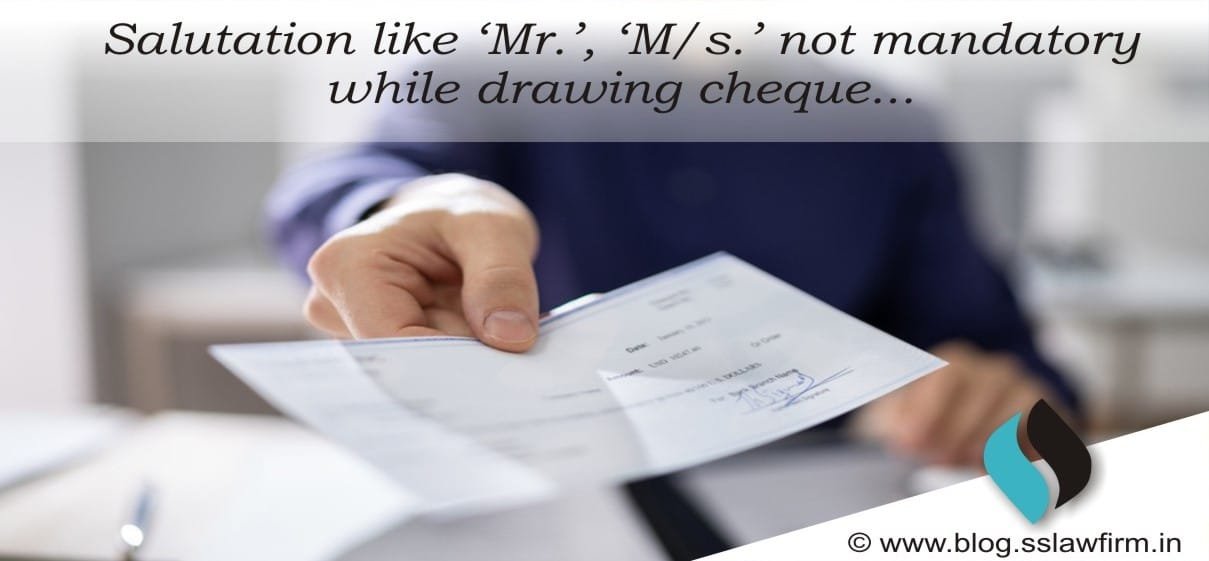Recently the Kerala High Court ruled that the salutation is not mandatory while drawing the cheque, if the same is not present then the accused cannot be ground for acquittal in proceedings under Section 138 of the Negotiable Instruments Act.
In Case of R. Raveendran c. Shajajan & Anr. Justice Gopinath P, while allowing an appeal, observed that “The alphabets ‘M/s’ which is a short form for ‘Messrs’ is normally a salutation intended to refer to a group of unincorporated persons, such as a partnership firm. The absence of such salutation while drawing the cheque by the accused cannot be a ground for the accused to be acquitted. Such a view is as good as saying that if the payee is not referred to in the cheque as ”Mr….”, the accused has to be acquitted.”
The ruling came in a criminal appeal that challenged a judgment of the Judicial First Class Magistrate Court whereby a man accused of an offense punishable under Section 138 of the Negotiable Instruments Act was acquitted.
The appellant is the Managing Partner of a partnership firm called ‘Lakshmi Finance’. He had registered a complaint alleging the commission of an offense under Section 138 of the Negotiable Instruments Act against the respondent.
However, the trial court acquitted the accused on the sole ground that the subject cheque was drawn in favor of ‘Lakshmi Finance’ and not ‘M/s.Lakshmi Finance’, though it is seen from the partnership deed that the name of the firm is ‘M/s.Lakshmi Finance’.
Aggrieved by the same, the appellant approached the High Court. The Court found that the alphabets ‘M/s’ which is a short form for ‘Messrs’ is normally a salutation intended to refer to a group of unincorporated persons, such as a partnership firm.
“The absence of such salutation while drawing the cheque by the accused cannot be a ground for the accused to be acquitted. Such a view is as good as saying that if the payee is not referred to in the cheque as ”Mr……..”, the accused has to be acquitted.”
Accordingly, the appeal was allowed and the judgment of the trial court was set aside. It was also added that the trial court may proceed from the stage before the pronouncement of the judgment and that the case shall be disposed of within a period of three months. The appellant was thereby directed to appear before the Judicial First Class Magistrate Court, the trial court to issue a fresh summons to the accused and proceed to dispose of the matter in accordance with the law.
Conclusion :
Therefore, it is observe that, salutation like Mr., M/s. not mandatory while drawing cheque and not ground for acquittal of case under Sec. 138 of NI Act.













